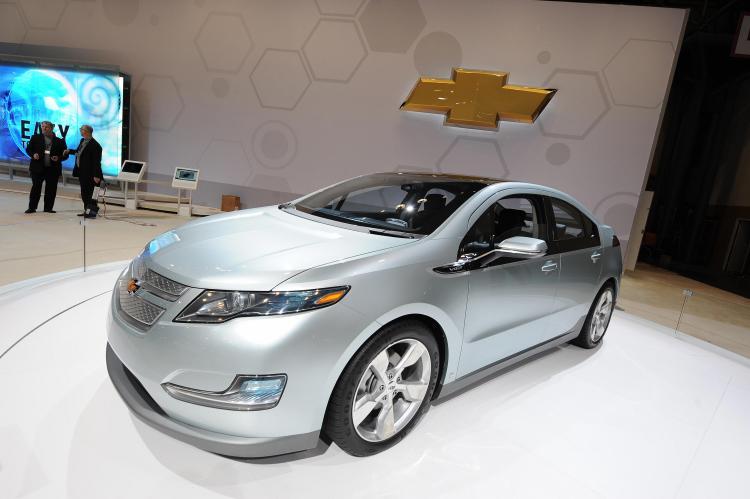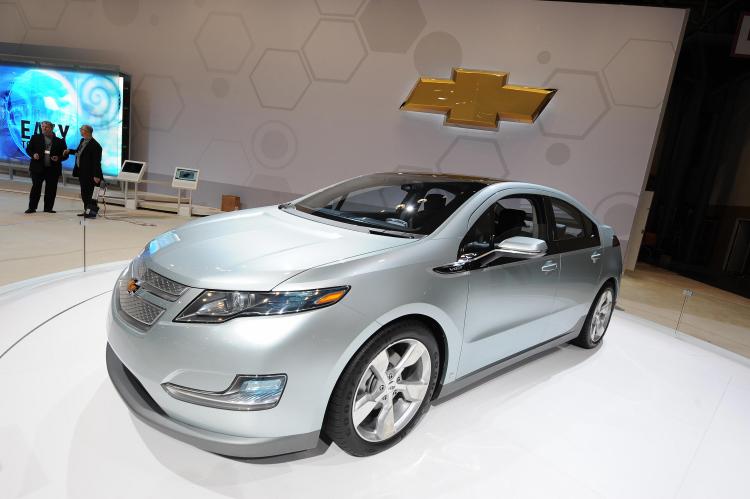GM Focuses on ‘Green’ Image with Chevy Volt
GM’s upcoming Chevrolet Volt rechargeable electric car would have the best mileage among all mass-produced hybrid vehicles.

The 2009 Chevrolet Volt is seen at the New York International Auto Show April 8, 2009 in New York. Stan Honda//AFP/Getty Images
|Updated:





